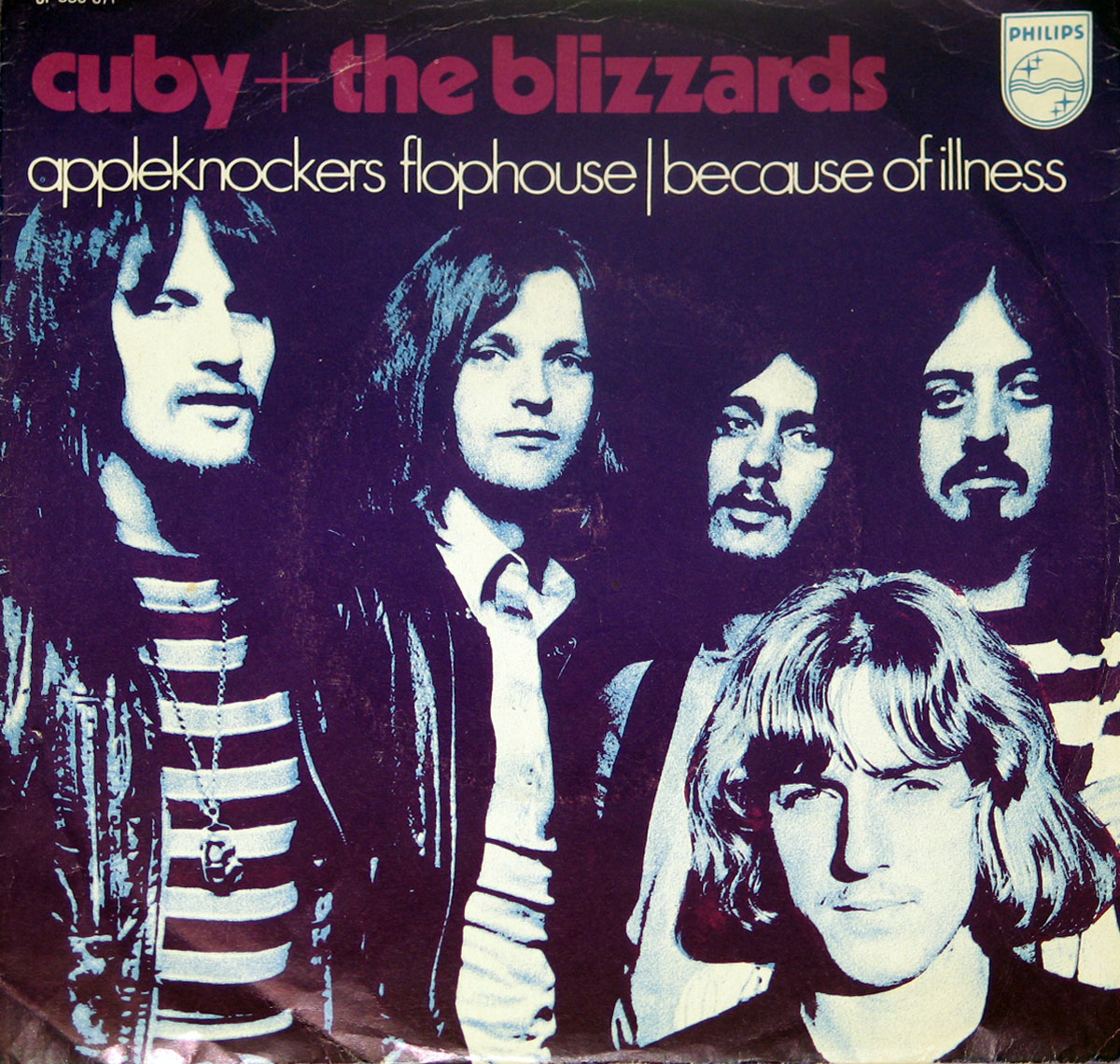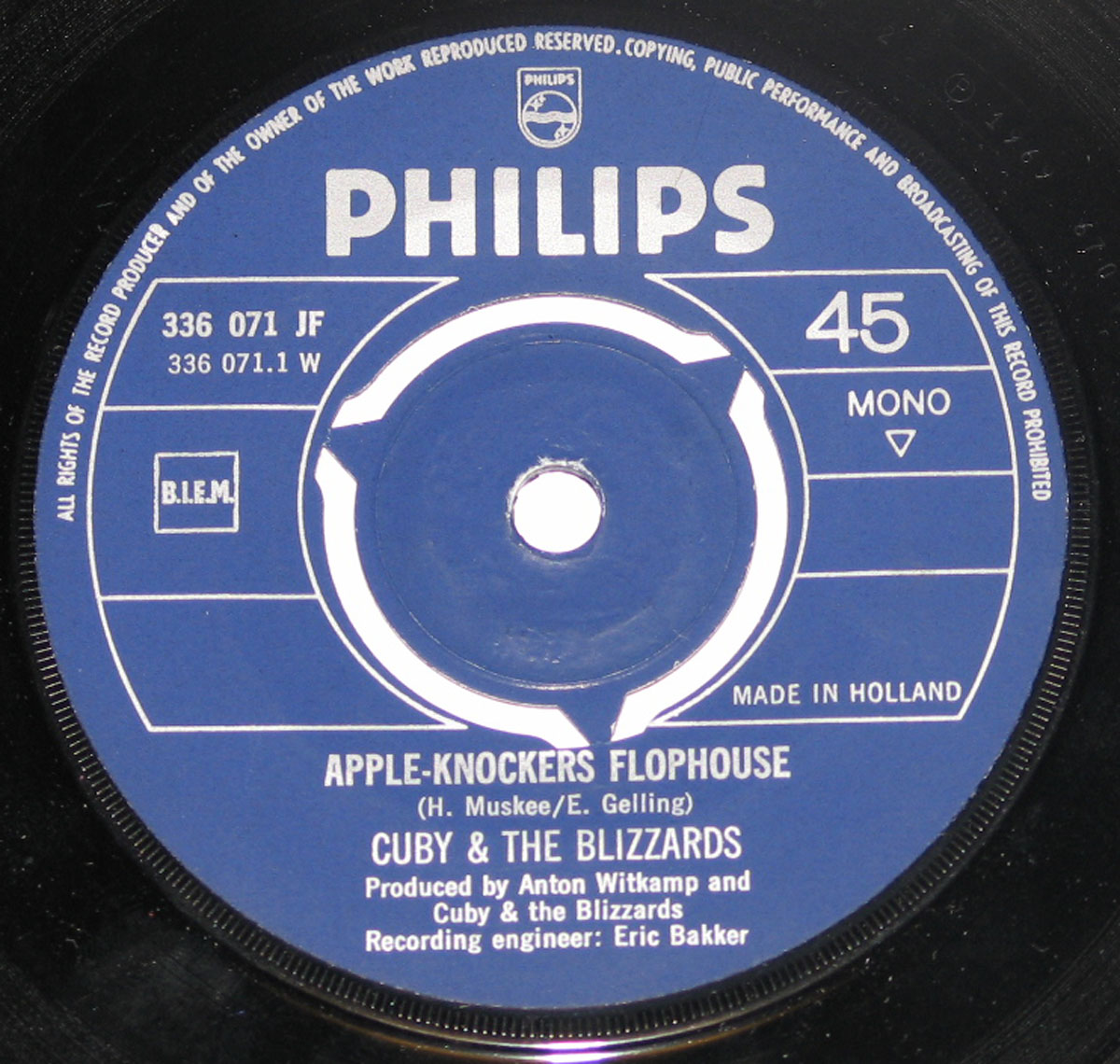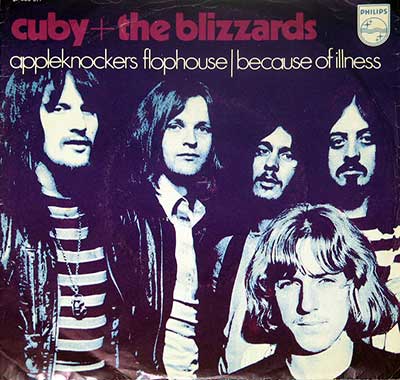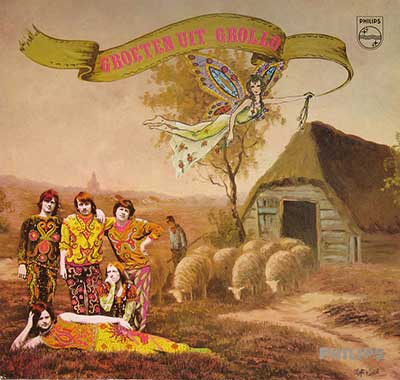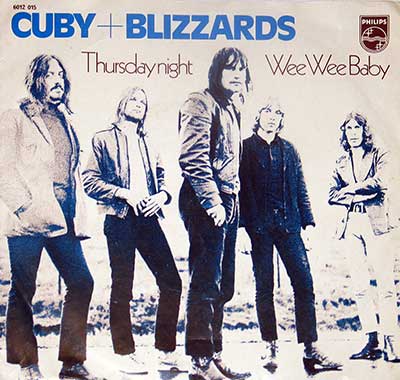Cuby & The Blizzards – Appleknockers Flophouse b/w Because of Illness Album Description:
Historical Context
By the close of the 1960s, the Dutch musical landscape was shifting. The beat scene had begun to fade, and a new craving for authenticity and grit found fertile ground in the blues. Cuby & The Blizzards, fronted by the raspy, melancholic voice of Harry Muskee and the precise, emotive guitar of Eelco Gelling, rose to fill that space. Formed in the rural village of Grolloo, they had already established themselves as the voice of Dutch blues by the time ÒAppleknockers FlophouseÓ hit turntables in late 1969.
Musical Exploration
"Appleknockers Flophouse" is no casual slice of blues rockÑitÕs a deeply felt, slow-burning track that simmers with resignation. MuskeeÕs voice cracks and wails like a man walking back from the edge, while GellingÕs guitar pours out notes like candle wax melting in slow agony. Backed by a solid rhythm section, the band turns a simple structure into something aching and elegant. On the flip side, ÒBecause of IllnessÓ offers a shorter, punchier tripÑa staccato-driven blues number with a haunting refrain that suggests inner turmoil and quiet rebellion.
Music Genre and Style
The single is rooted firmly in the blues, but this isnÕt a carbon copy of Mississippi Delta lament. ItÕs Nederblues: a distinctly Dutch interpretation of the genre, soaked in European melancholy and the rural grit of Drenthe. Cuby & The Blizzards managed to sound both global and intensely local, drawing from HowlinÕ Wolf and Muddy Waters but never imitating. Their delivery is sparse yet immersive, emotional but never theatrical.
Success in the Netherlands and Beyond
In the Netherlands, the single became an underground anthem, especially among students, bohemians, and disillusioned youth craving something deeper than pop. It solidified the band's image as outsiders, prophets of the backwater blues. Though their fame remained largely domestic, they shared stages with the likes of Van Morrison and John Mayall, and their respect among European blues circles grew steadily throughout the early Õ70s.
Production and Recording
The record was produced by Anton Witkamp, a key figure in Dutch music journalism and production, in close collaboration with the band itself. This co-production approach preserved the groupÕs creative control and sonic integrity. The engineering duties were handled by Eric Bakker, whose deft touch at the recording console helped maintain the rawness of the sessions without slipping into murk.
Recorded in the Netherlands, the studio environment was kept intentionally minimalÑno lavish overdubs or orchestrationÑjust a live, close-mic'd band performing with their guts on the floor. That authenticity is etched into every groove of the MONO mix.
Conclusion
This single captures a moment where a Dutch blues band didnÕt just borrow a genreÑthey transformed it. "Appleknockers Flophouse b/w Because of Illness" isnÕt just a recordÑitÕs a dispatch from the soul of a country still finding its voice in the blues. Raw, spare, and unsparing in emotional honesty, it remains one of the most potent moments in the European blues tradition.
